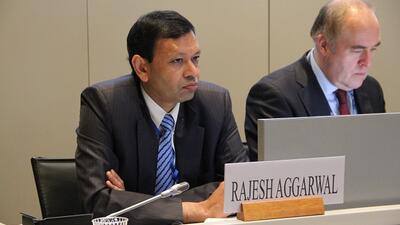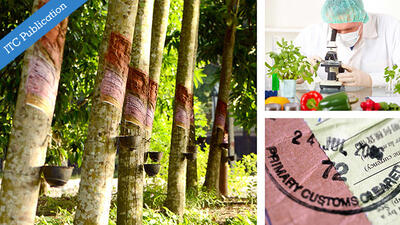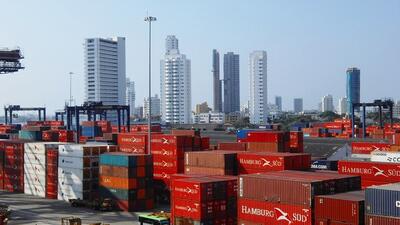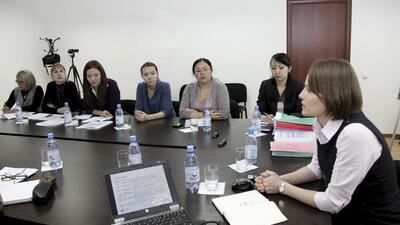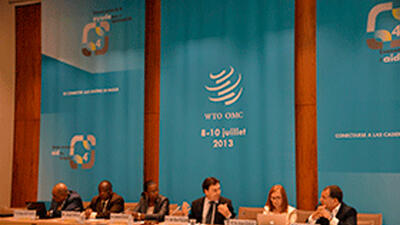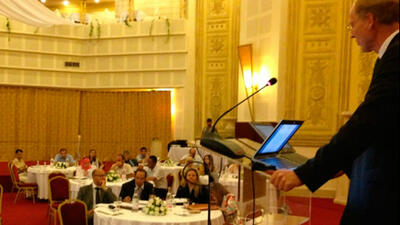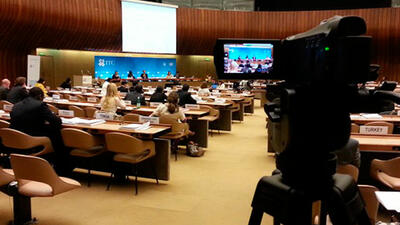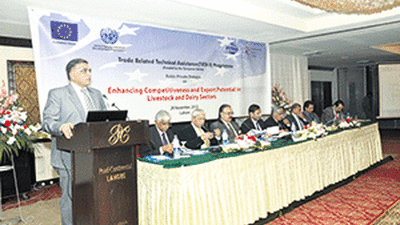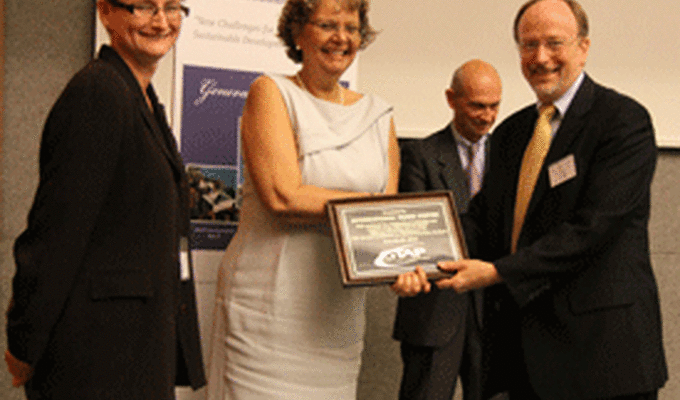

ITC executive director calls for removal of bottlenecks to trade
ITC Executive Director Patricia Francis on 27 June urged trade-policy analysts to put focus on the business perspective of trade and development and to identify ways of bringing a critical view on non-tariff measures (NTMs) into research.
Addressing participants at the 15th Annual Conference on Global Economic Analysis, held at the WTO’s Geneva headquarters, Ms Francis highlighted the importance for ITC of working in partnership with the Global Trade Analysis Project (GTAP), the global network of researchers and policymakers hosting the three-day conference, to deliver and manage export-development programmes.
‘With enhanced information on preferential market access, we know a lot more today about the actual level of protections and the benefits of removing tariff barriers than we did before this fruitful collaboration between ITC and GTAP began.’
Ms Francis pointed out that, in the past few years, ITC has broadened the scope of its analysis of trade-policy measures. Whereas before the focus was only at customs tariffs, this has been extended to include a systematic analysis of NTMs, which is an area of growing concern for both policymakers and businesses, and through running surveys in around 30 countries ITC is now able to determine how enterprises experience NTMs as obstacles to free trade.
‘This is important as it provides the enterprises with a collective voice,’ Ms Francis said. ‘At the same time it provides policymakers with direct evidence of the bottlenecks to trade and constraints on international business…this is a key step in improving the business environment and identifying trade-policy instruments to help companies to access markets.’
Ms Francis said that ITC is working to ensure that policymakers know what the private sector needs, that companies understand what export opportunities exist and how policies and regulations affect those opportunities. ‘In short, it is critical for ITC to be linked into the global trade research community and the policy flowing from that community,’ she said.
She pointed to one recent ITC study on regional integration in the League of Arab States (LAS) as an example that came out of such research. This found that by reducing non-tariff barriers to trade between LAS countries could create two million jobs in exporting sectors and increase trade by 10%.
Ms Francis was joined by WTO Director General Pascal Lamy and UNCTAD Deputy Secretary-General Petko Draganov, who in their opening remarks to the conference also stressed the importance of the analytical work done by members of GTAP and why it is needed to develop good trade policies.
‘Why does WTO support GTAP?’ Mr Lamy asked. ‘For one simple reason: Good policy needs to be backed by good analysis. Understanding policy-changes requires much more than an idea in someone’s head.’
Mr Draganov said that the conference is being held at an important time, pointing to the ‘sluggish’ financial crisis. ‘Good policies require innovative ideas and sound analysis. We need such new thinking now more than ever,’ he said.
Mondher Mimouni, Chief of ITC’s Market Analysis and Research department, was awarded a GTAP Research Fellowship for his outstanding contribution to the GTAP Data Basa through ITC’s Market Access Map (MacMap) tool that Mr Mimouni has led the development of.
The evenings plenary session was chaired by Mr Thomas Hertel, the founder of GTAP, and Mr Jean-Louis Arcand, Professor of International Economics the Geneva Institute, delivered the keynote speech on ‘Development and the Effectiveness of Social Programmes’.
Learn more about ITC’s MacMap.
Learn more about GTAP.




